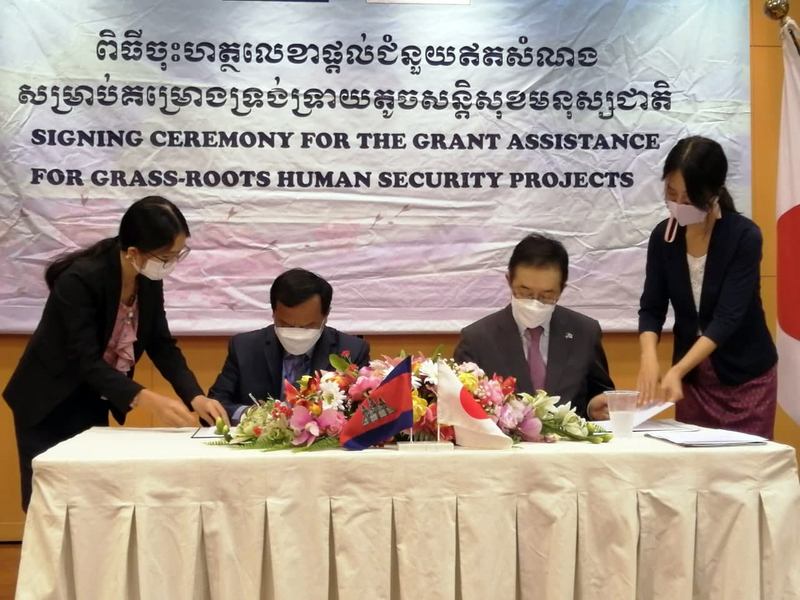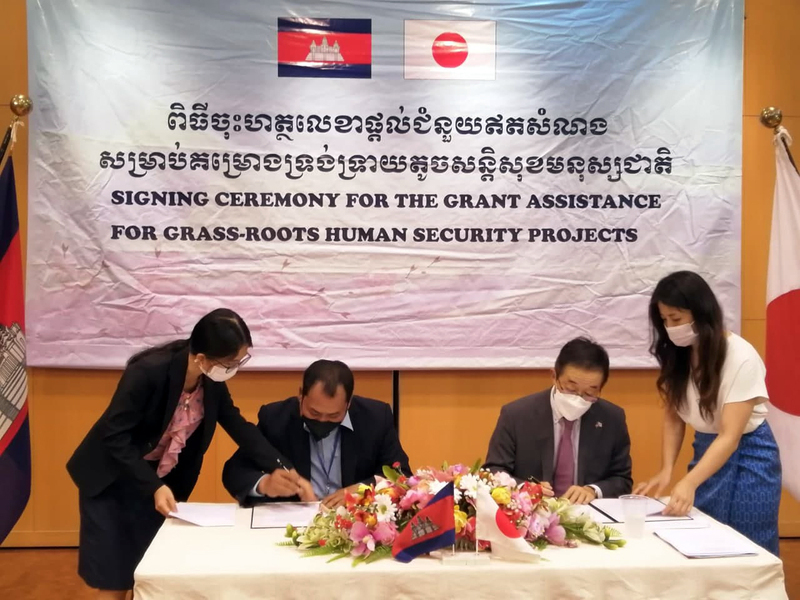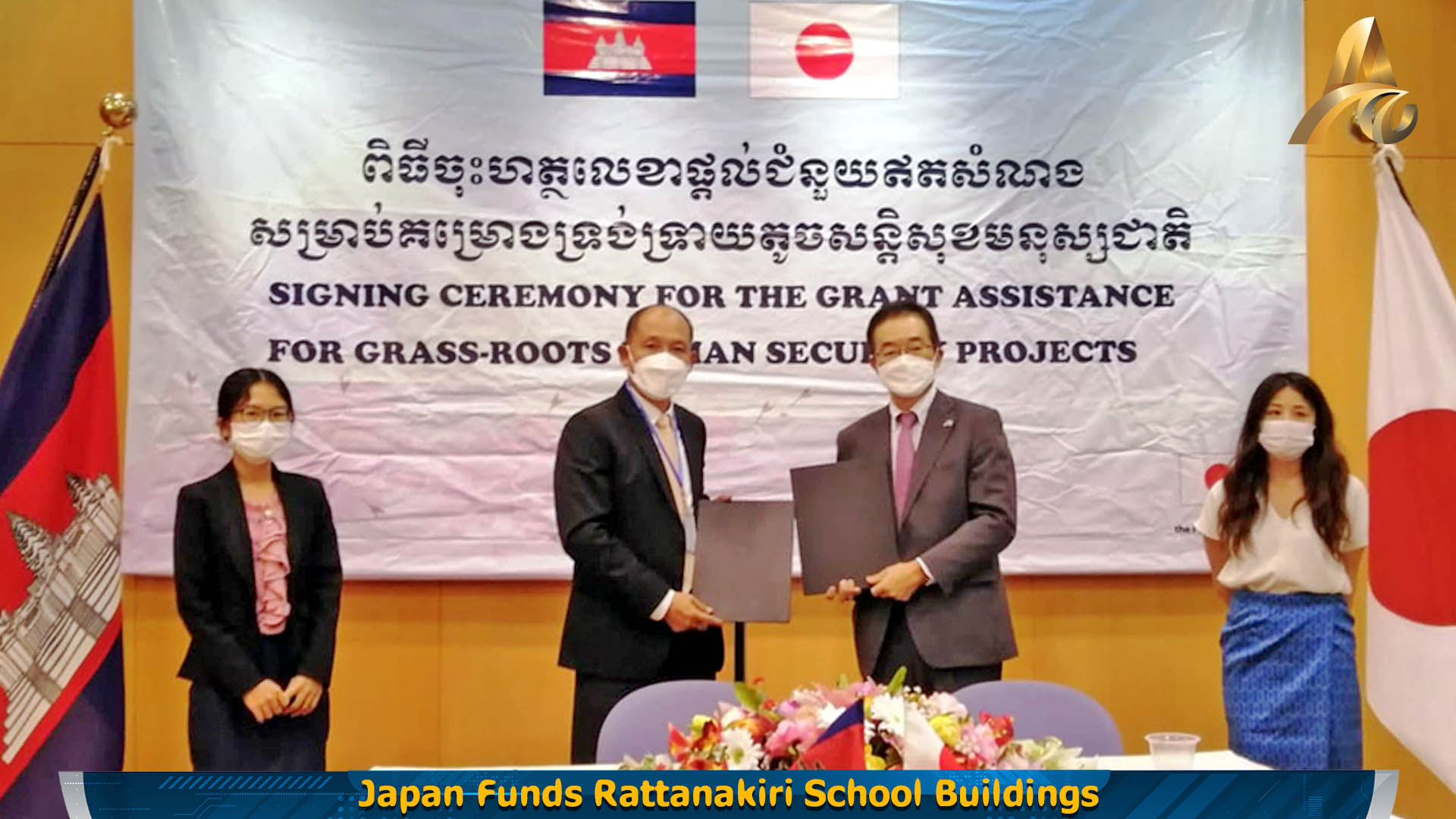PHNOM PENH: The Japanese Government has provided over $280 thousand to Cambodia to support the construction of school buildings and the rehabilitation of irrigation facility in Rattanakiri, Stung Treng and Pursat provinces, under the framework, the Grant Assistance for Grassroots Human Security Projects ("KUSANONE" Grant). The Grant Contracts have been signed by the Japanese Ambassador to Cambodia Mikami Masahiro, and representatives of the recipient organisations on Monday.
The Japanese Embassy has revealed that out of the total budge, $98 thousand will be used to construct a six-room school building equipped with school furniture, a four-room toilet and a water tank at O' Yadav Lower Secondary School in O' Yadav district, Rattanakiri province. It is expected to benefit 455 students and 15 teachers through the improvement in the learning environment and the quality of education. Some $91,566 will support the Project for Constructing School Buildings at O' Russei Leu 1 and 2 Primary School in Siem Bok district, Stung Treng province. This project will ensure the safer and more comfortable learning environment, and it is expected to benefit total 201 students and 8 teachers through the improvement in the quality of education.
The rest will be allocated for the Project for Rehabilitating O' Sambuor Irrigation in Kampong Speu province. It is expected to benefit more than 3,300 local people by securing stable water supply for living and agricultural activities. Japan's "KUSANONE" Projects started in Cambodia in 1991 in order to support Cambodia's reconstruction and development at the grassroots level. It is aimed to protect those who are vulnerable due to various factors such as poverty and/or misfortunes that directly threaten their lives, livelihood, and dignity, as well as to promote self-reliance of local communities.
























